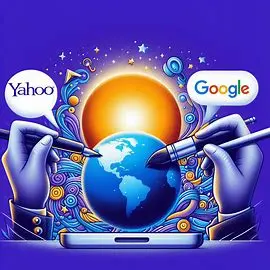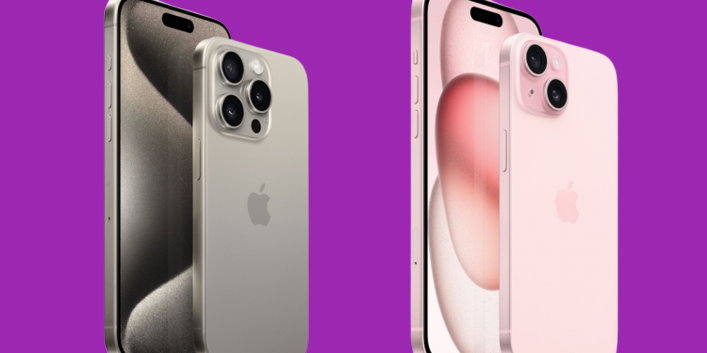
What is the Difference Between Google Yahoo and Bing?
Bing and Google are the leading names that come to mind when discussing search engines. While Google has long been the go-to choice for online searches, Bing is also popular due to its unique features, such as superior visual searches and a rewarding user experience. Let’s explore the key differences between these search engine giants.
Market Share:
Google undeniably dominates the search engine market, boasting an impressive 86.6% global market share. In contrast, Bing holds a smaller portion at 6.7%. Despite this gap, Bing still commands a significant user base, particularly in the United States, where it powers one-third of online queries, including those on Yahoo and voice searches.
Functionality:
Both Bing and Google offer a range of core features, including text, video, and image search, maps, news, and shopping. However, Google goes a step further by providing additional features like Books, Flights, and Finance, which are not available on Bing.
Size of Index and Crawling:
Google boasts a colossal index containing hundreds of billions of web pages, spanning over 100,000,000 gigabytes. In comparison, Bing’s index is estimated to be between 8 to 14 billion web pages. Both search engines employ sophisticated algorithms to determine which sites to crawl and how often.
Paid Advertising and Competition:
Bing Ads typically have lower costs-per-click and face less competition compared to Google Ads. Additionally, Google’s mobile-first indexing approach differs from Bing’s strategy, presenting distinct opportunities for advertisers.
User Interface:
Google’s interface is renowned for its minimalist design and straightforward navigation. In contrast, Bing offers a more visually engaging experience, with its homepage often featuring stunning background images.
Bing vs. Yahoo: A Comparative Analysis
Background and History:
Yahoo, founded in 1994 by David Filo and Jerry Yang, predates Bing by over a decade. Initially known as “Jerry and David’s Guide to the World Wide Web,” Yahoo has evolved into a comprehensive online portal, offering services like Yahoo Mail and Yahoo Games. In contrast, Bing was launched by Microsoft in 2009 and has steadily grown its user base, now collaborating with Yahoo.
Website Indexing:
Yahoo boasts an extensive index of over 20 billion web pages, supporting larger and established websites. While Bing’s index may not match Yahoo’s scale, it still maintains a substantial repository of web pages.
Search Results Approach:
Bing focuses on content-based search results, striving to deliver relevant content based on the user’s query. On the other hand, Yahoo emphasizes word-specific search results, tailoring its results to match specific terms entered by users.
User Interface:
Yahoo offers a simple and user-friendly homepage, allowing quick access to features like news, maps, sports, and email. In contrast, Bing provides a visually appealing interface reminiscent of Google’s clean design.
Security:
While both Bing and Yahoo have encountered security issues, Bing is generally considered more secure than Yahoo, offering users enhanced protection against online threats.
Audience and Purpose:
Bing tends to attract users seeking business-oriented searches, while Yahoo caters to personal and entertainment-related queries. Yahoo’s prominence in news segments also makes it a valuable source for up-to-date information.
Search Engine Comparison: Google vs. Bing vs. Yahoo
| Feature | Bing | Yahoo | |
|---|---|---|---|
| Primary function | Search engine | Search engine | News and entertainment aggregation |
| Market share | 90%+ | 3% | <1% |
| Strengths | Best search accuracy, diverse features, strong mobile app integration | Rewards program, visual search, good video search | Easy-to-use interface, news aggregation, entertainment content |
| Weaknesses | Privacy concerns, data collection | Search accuracy not as strong as Google | Limited features |
| Unique features | Extensive range of integrated services (Gmail, Maps, Drive, etc.) | Rewards program, image recognition, Copilot | News aggregation, email |
| Best for | Most users seeking reliable search | Users who value rewards and visual search | Casual users seeking news and entertainment |
| Search Volume Index | High | Medium | Low |
Are Yahoo and Bing the Same?
No, Yahoo and Bing are not the same. They are two different search engines with distinct features and functionalities.
Yahoo:
- Yahoo is one of the oldest search engines, established in 1994.
- It provides various services such as Yahoo! News, Yahoo! Mail, Yahoo! dictionary, Yahoo! map, etc.
- Yahoo shows search results based on matching words.
Bing:
- Bing is a search engine owned by Microsoft.
- It provides web, video, and image search results.
- Bing shows content-based search results.
- Microsoft’s search engine Bing recently added a new AI-powered assistant feature called Copilot.
While they are separate entities, they have been working together since 2009, sharing ads and search results. Despite their collaboration, each search engine maintains its unique features and interfaces.
In summary, both Bing and Google, as well as Yahoo, offer unique features and serve different purposes. Whether you prioritize extensive functionality, user-friendly interfaces, or specialized search capabilities, the choice between these search engines ultimately depends on your specific needs and preferences. Regardless of your preference, the wealth of options available ensures that users can find the information they seek with ease in today’s digital landscape.



